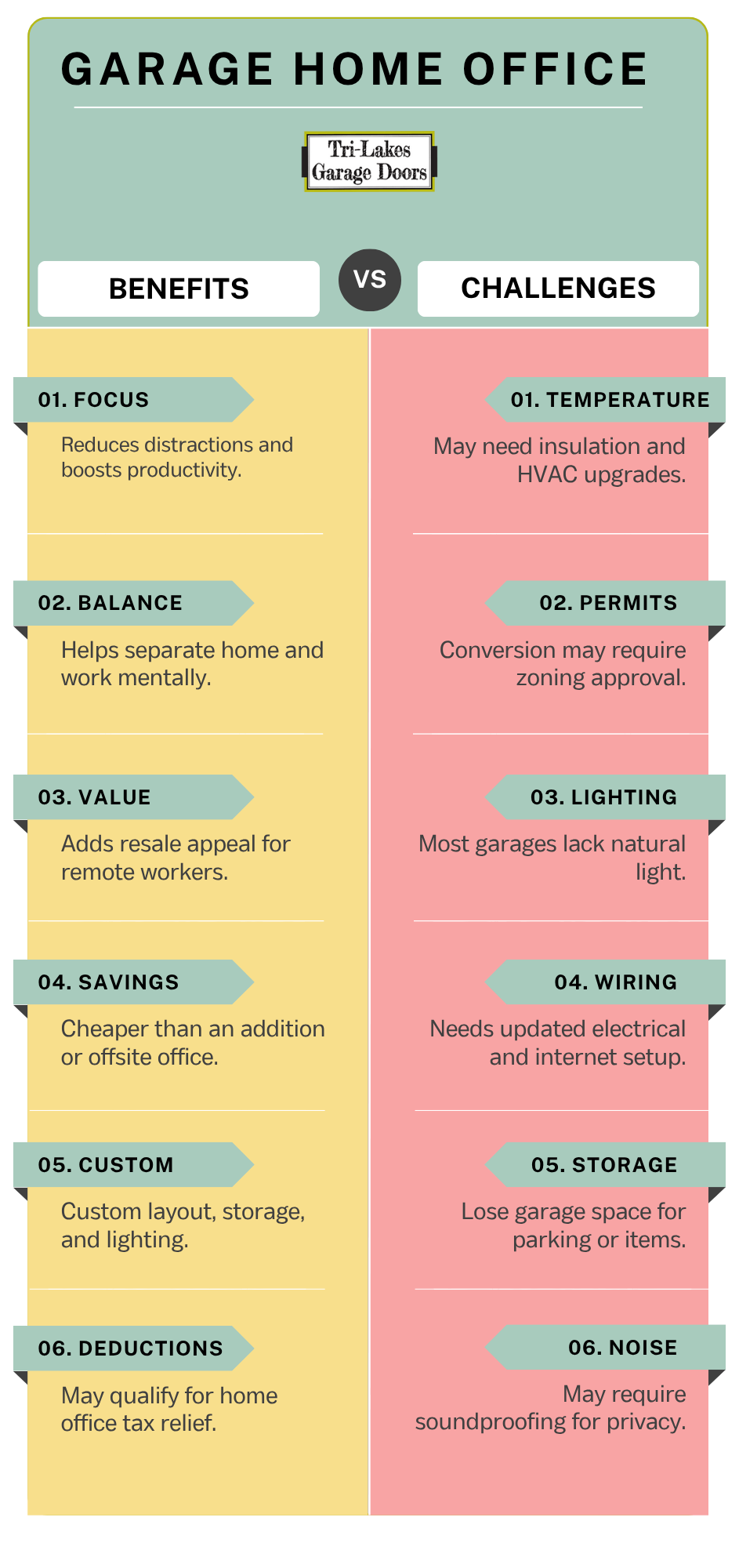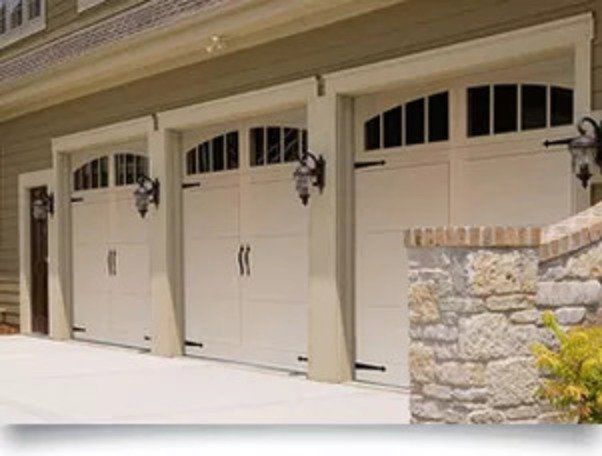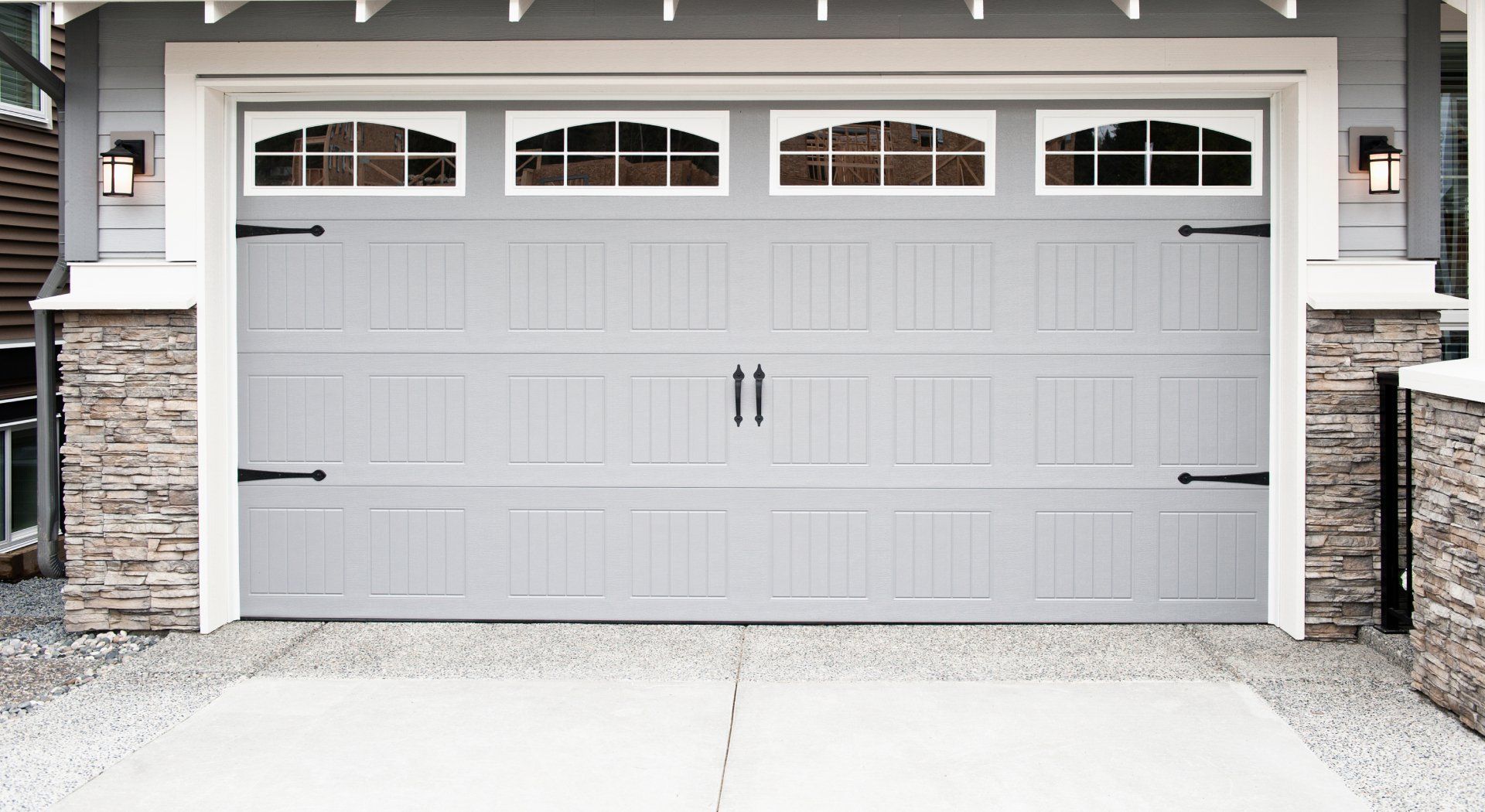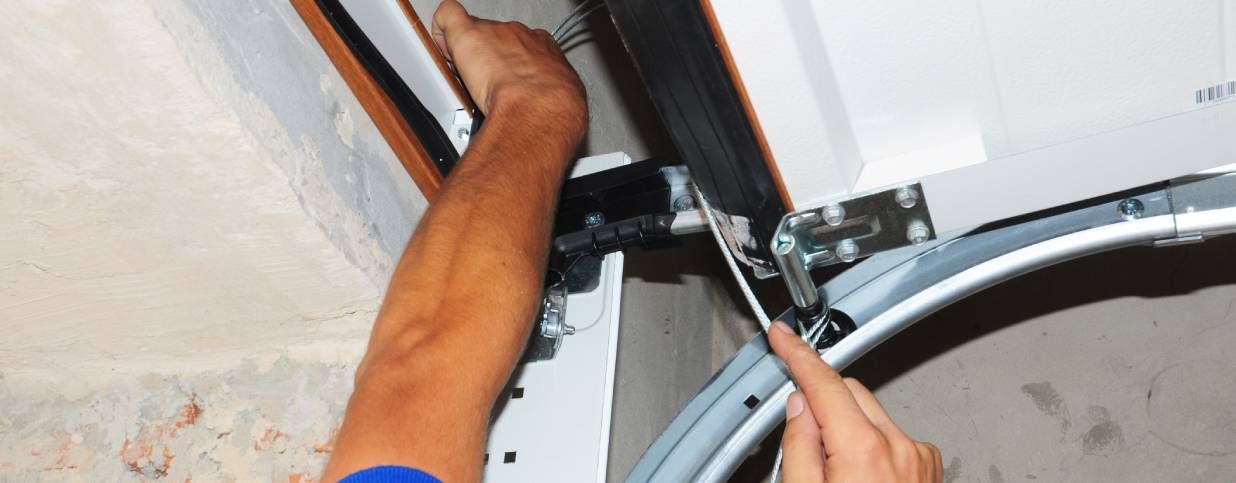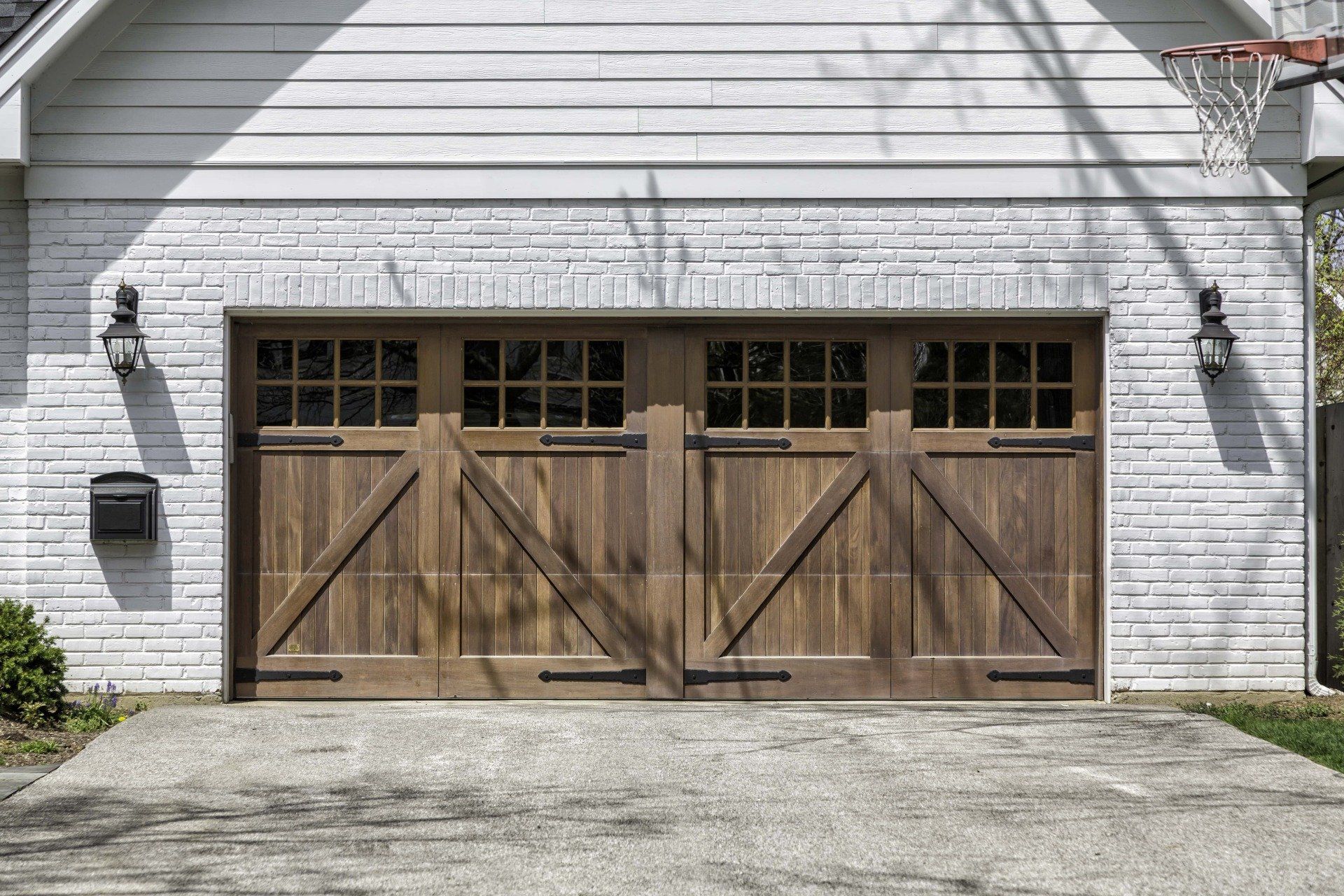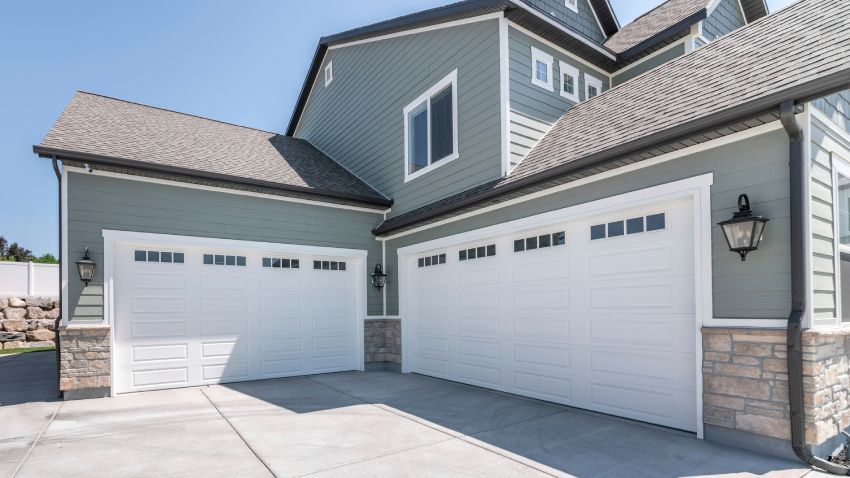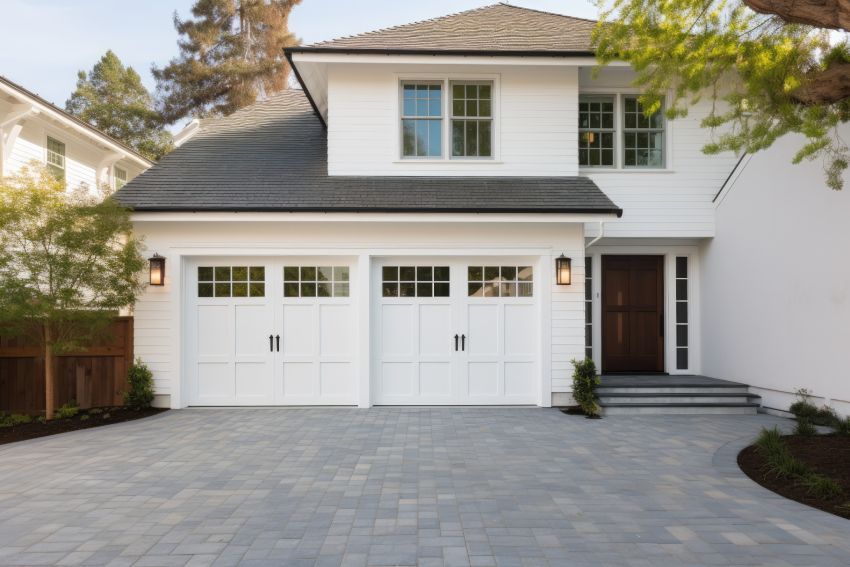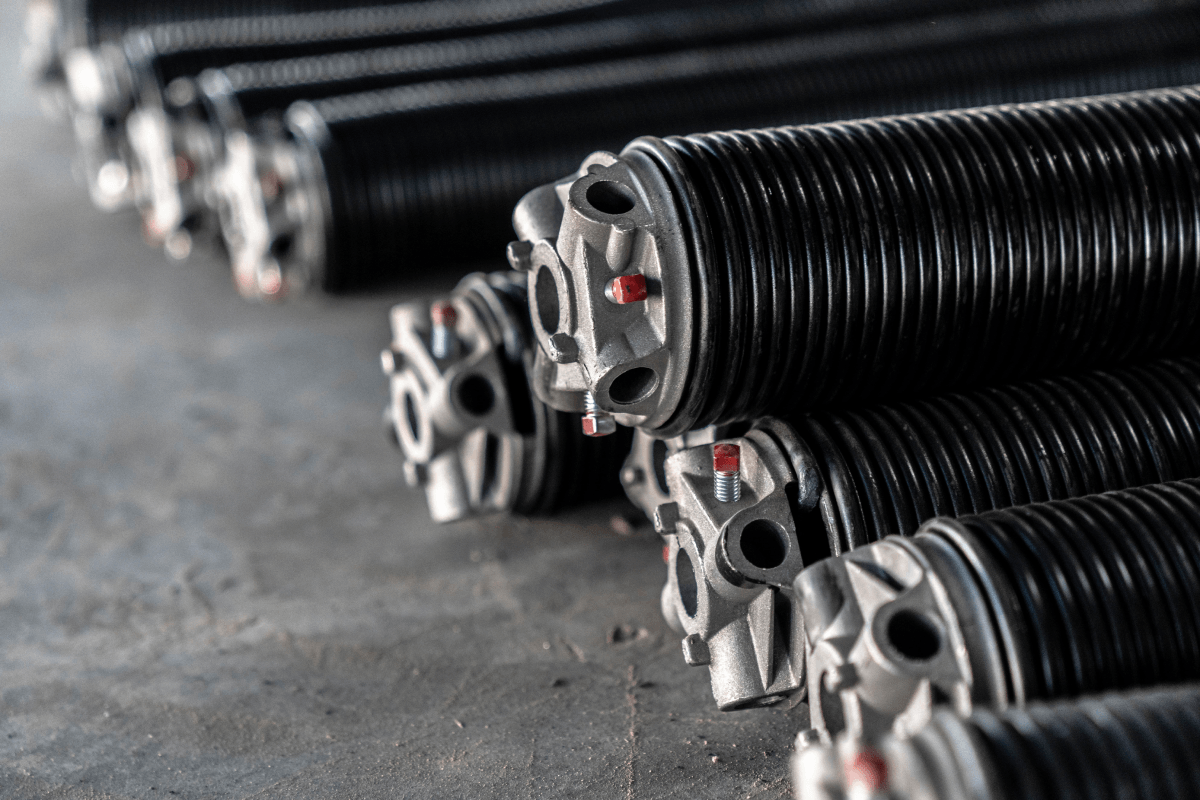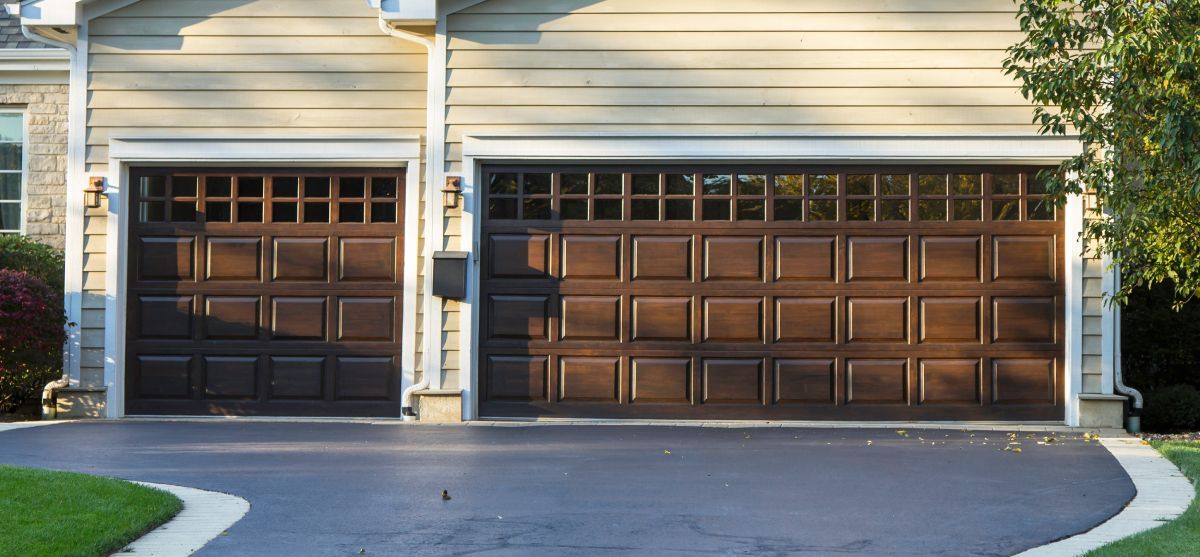If you're converting your garage into a functional space like a garage home office, selecting the right door material is more important than ever. The garage door affects not just security and curb appeal, but it also impacts insulation, noise control, and year-round comfort. Whether you're aiming for a warm, traditional look or a sleek, modern design, understanding how different materials perform in Colorado Springs' unique climate will help you choose a garage door that supports both style and productivity.
Why Convert Your Garage Into a Home Office?
If you're looking for extra space to work without the noise and distractions of the main house, turning your garage into an office is a smart solution. It gives you a dedicated area to focus, separate from daily household activity, and helps improve your overall productivity.
A garage offers just the right amount of room to create a comfortable setup without taking away from your living space. With the right layout, you can include everything from your desk and chair to storage that keeps things organized and out of the way. It’s also a great opportunity to cut down on clutter and make better use of underused square footage.
Starting from scratch or upgrading an existing space, converting your garage can significantly boost your home’s value while making remote work far more comfortable and efficient.
How to Convert Your Garage Into a Home Office
Weatherproof Your Garage
Most garages weren’t designed for daily living, which means temperature regulation is often a challenge. Your first priority should be proper insulation for the walls, ceiling, and especially the garage door. This not only helps regulate heat and cold, but insulation also reduces noise from outside, ideal for remote work setups.
Since a garage isn't built like a typical interior room, adding a system to keep the space warm in winter and cool in summer is essential. A mini-split HVAC is a smart solution for year-round comfort. If your garage renovation is part of a broader home improvement effort, insulating early will help reduce your home's energy usage in the long run.
Set Up Equipment
Once the space is weather-ready, it’s time to outfit it for work. Choose ergonomic furniture to support your posture and add tech tools that meet your daily needs. A reliable internet connection is critical, so test your home Wi-Fi signal in the garage. If it’s weak, installing a stronger router or a mesh network node can solve the issue.
Don’t forget a dedicated power source for your computer, monitor, and printer. You’ll want your garage office space to function just like any other professional environment, with everything within arm’s reach and ready to go.
Add Good Lighting and Windows
Lighting plays a major role in your mood and productivity, especially when working in the garage for extended periods. Standard garage lighting is often too dim or harsh. Upgrade with layered options: soft overhead lighting, focused desk lamps, and, where possible, natural light.
Installing windows or even a partial glass garage door can brighten up your new office and improve airflow. Natural lighting helps maintain a healthy work rhythm and creates a more inviting garage office environment.
Add Extra Touches
Now that the basics are in place, it’s time to personalize your setup. Add artwork, plants, or a backdrop for video calls that reflects your style and helps distinguish the space. If you’re short on square footage, vertical shelves or mounted cabinets can maximize your storage space without adding clutter.
These small additions not only give the space a warm, lived-in feeling but also help maintain a clutter-free, efficient layout.
Choose A Good Garage Door
The garage door is an important element in any garage-to-home office project. It affects everything from insulation and comfort to security and style. When planning your office conversion, choose a door that not only improves curb appeal but also supports year-round use.
Look for a model designed with built-in insulation and a tight weather seal. This helps maintain indoor temperature regardless of the weather and contributes to energy efficiency. A well-insulated door can also reduce noise, an important factor when working in the garage full-time.
Modern garage doors come in a range of styles and materials, so you can easily find one that complements the rest of your home. For added peace of mind, consider security features like reinforced hardware or smart entry systems.
To ensure proper fit and performance, always work with a qualified garage door provider. A professionally installed door is the finishing touch that brings your garage office together, both visually and functionally.
Turning Your Garage into an Office: Construction and Design Considerations
Converting a garage into a home office involves more than furnishings and décor; it requires infrastructure updates to ensure the space is safe, efficient, and comfortable. Below are the key construction and design elements to plan for during your garage renovation.
Insulation and Drywall
Before you can turn your garage into a livable office space, proper insulation is essential. Most garages were not built for daily use, so without upgrades, they tend to get hot in the summer and cold in the winter. Adding proper insulation to the walls, ceiling, and garage door helps maintain a stable temperature and reduces your home’s energy usage.
Drywall comes next. Once insulation is in place, sealing the walls with drywall gives your garage a clean, finished look. It also improves soundproofing and creates a neutral backdrop for your office design. Be sure to mud, tape, and paint the drywall to match your desired aesthetic. This will help the space feel less like a garage and more like a natural extension of your home.
Heating and Cooling (HVAC)
Climate control is one of the biggest factors in making your garage office comfortable for daily use. Since your garage typically wasn’t built with heating or cooling in mind, you’ll need to add a system to keep the space comfortable throughout the year. A ductless mini-split is a popular choice for its efficiency and ease of installation, especially in a garage without existing HVAC infrastructure.
Proper ventilation is just as important as temperature control, especially if you plan to spend long hours working in the garage. Combined with insulation, a dedicated HVAC system allows you to use your garage regardless of the weather, making it a true extension of your living space.
Electrical and Internet Setup
A functional home office needs more than just power; it needs enough outlets, reliable lighting, and strong internet access. Most garages only have minimal wiring, so part of your garage conversion project should include adding dedicated circuits and outlets for office equipment, lighting, and heating/cooling systems.
Internet connectivity can also be a challenge. If your signal doesn’t reach well into the garage, upgrade your home Wi-Fi system or install a second router. These small adjustments make a big difference when it comes to keeping video calls and cloud-based apps running smoothly.
Flooring Options
Garages usually have a cold, bare concrete floor, which doesn’t make for a welcoming office environment. Covering the slab is one of the quickest ways to give the space a more polished, comfortable feel. Popular choices include vinyl planks, laminate, and durable floor coatings designed specifically for garage environments.
The right flooring not only adds comfort underfoot but also helps define the space visually. If you're aiming to create an office that feels separate from the rest of the garage, this is a simple and effective way to make the transition.
Storage and Cabinetry
Effective storage is key to maintaining a clutter-free environment. Built-in cabinets, shelves, and wall-mounted systems help you organize supplies without sacrificing floor space. Whether you're storing files, tech gear, or office accessories, custom solutions can turn any wall into an efficient, usable space.
If you plan to combine your office with other functions, like a hobby area or small gym, multi-purpose cabinetry can keep your garage office space neat and adaptable. Built-in units also contribute to a professional look, making it easier to focus and be productive.
Windows and Skylights
Adding natural light can dramatically change how your garage office ideas come to life. Most garages have little to no natural lighting, which can make them feel dim or uninviting. Consider installing windows or skylights to brighten the space and improve ventilation.
Even a small window can increase natural light, boost your energy, and enhance your connection to the outside world, an important element for anyone who works from home. If your budget allows, replacing part of the garage door with a windowed section is another way to improve both aesthetics and natural light in your garage into a workspace project.
Zoning Laws, Building Codes, and Permits
Converting your garage into a home office isn’t just a design project—it’s a structural change that may be regulated by local laws. To avoid costly delays or penalties, it’s important to understand the legal framework before starting your garage renovation.
Check Local Zoning Requirements
Not every property qualifies for a garage-to-office conversion. Zoning laws control how property can be used and may limit your options.
Considerations include:
- Whether home office use is allowed in your zoning district
- Minimum off-street parking or storage requirements
- Rules about maintaining a certain number of enclosed parking spaces
- Restrictions on converting a 2-car garage in certain neighborhoods
Contact your local planning office to confirm whether you can legally convert a garage into an office in your area.
Review Building Codes and Safety Standards
Once zoning allows it, your next step is to comply with building codes. These are designed to ensure your space is safe, accessible, and energy-efficient.
Expect regulations around:
- Minimum ceiling heights and ventilation
- Fire-rated walls and garage door requirements
- Electrical system updates (especially if you're adding HVAC or lighting)
- Proper insulation for temperature control and energy efficiency
You may be required to schedule inspections during and after construction to confirm that your garage office meets code.
Understand When Permits Are Required
In most cases, you'll need one or more permits for a legal garage conversion project—even for changes like:
- Installing drywall and insulation
- Extending electrical wiring or adding new outlets
- Installing windows, skylights, or HVAC systems
Required permit types may include:
- Building permits for structural changes like framing, drywall, or windows
- Electrical permits for rewiring or new outlets
- Mechanical permits for HVAC systems
- Plumbing permits for sinks, drains, or water lines
Permits protect your investment and help ensure your garage office space is built to standard.
Work With a Licensed Contractor
If this process sounds complex, it’s because it can be. A licensed contractor experienced in garage renovation projects can:
- Navigate zoning and building code requirements
- Obtain and manage all necessary permits
- Coordinate inspections
- Ensure compliance with local and state regulations
This upfront planning helps avoid legal headaches and protects the long-term resale value of your home.

